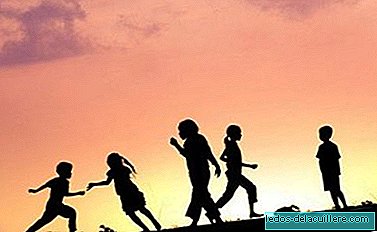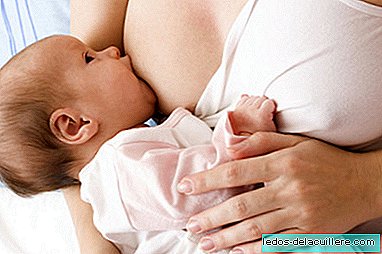
The last study of the INE (National Institute of Statistics) titled Projection of the Spanish Population in the short term (2011-2021) that alerts us to the demographic crisis of our country in the next decade appeared last Friday. Some of the most convincing data are that as of 2019 the deaths will surpass the births, and that, starting next year, a demographic decline will begin that will lead to that in 2021 the Spanish population is less than now, going from almost 46 million to 45.6 million.
We can think that in a world so overloaded and with so many resources exploited to the fullest, seeing a population reduction is positive. But we must analyze in depth what this decrease really means. In Spain there will be fewer and fewer people, but above all, there will be fewer and fewer children.
First, this is a clear indication that the profound economic crisis has penetrated society until it loses confidence and the possibility of increasing families. In addition, the loss of many workers who arrived in Spain in times of economic boom and return to their countries to have run out of possibilities here. Logically, and yet these people are young, they contributed to the recovery of birth rates and, without a doubt, they were a productive force that would bear the economic burdens of a State with increasing medical and social expenses derived, precisely, from the high percentage of old people.
And, secondly and seriously worrying, the cause of this demographic decrease forecast, is that fewer and fewer children are born and less and less children will be born. A society without children, in which there are more and more elderly people, has a problem, as there will be fewer and fewer people who produce, and therefore, sustain economically and care for the dependent population.
In 2021 there will be almost half a million children under five years younger than now. There will also be many fewer people between the ages of 20 and 40, as this age bracket includes those born in the birth crisis of the 80s. On the contrary, the dependency rate will rise from 48% from 2000 to 57% due, above all, that there will be approximately a notable increase in the population over 64, which will increase from 20 to 34%.
Our current youth will have to support more and more older people, and produce enough so that 57% of the dependent population can maintain a decent life. And every time children will be less common in our, in the future, if the trend does not change, we could arrive at a panorama that is not happy, well, let's consider it, if there are less and less children bornIf measures are not implemented that make us get out of the economic crisis and, at the same time, encourage birth: what will happen in 30 years, when the children born now are adults?
Just this week I have been teaching about the causes of the fall of the Roman Empire and a fundamental one was its demographic fragility. On the other hand, a Malthusian growth would only lead us to deplete resources if we do not change the methods to achieve them. What future awaits our children?
One thing seems obvious, if the trend does not change dramatically, every time there are and there will be fewer children in Spain. Is that good or bad for them?












